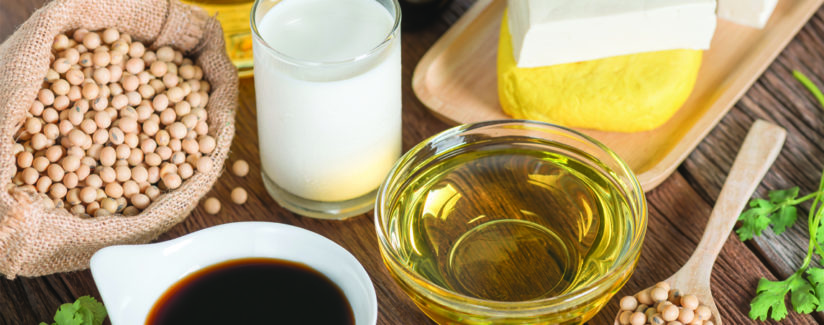
Should You Avoid Cooking Oil If You Have a Soy Allergy?
If you or someone you love has a food allergy, you know how challenging it can be. It requires planning ahead and being vigilant about reading menus and food labels.
Soy is one of the eight most common food allergens. Soy oil is frequently used in food preparation and those with allergies need to know if it is okay to eat foods cooked in soy oil and what foods you should avoid if you’re allergic to soy.
We asked Dr. Melanie Downs, an assistant professor with the Food Allergy Research and Resource Program at the University of Nebraska-Lincoln, to help us understand some of the science about food what causes food allergies and what foods to avoid to be safe.
The good news: “There is no need for soy-allergic individuals to avoid soy oil. Soy-allergic individuals may wish to avoid cold-pressed or expeller-pressed soy oil but this type of oil is rarely used as an ingredient in processed foods,” Dr. Downs said.
She explained that oil is usually safe because the part of the food that triggers an allergy is in the protein portion of the soybean.
“The food components responsible for soy allergies, like nearly all food allergies, are the naturally occurring proteins in the food. Foods can have a number of different allergenic proteins, and allergic individuals may react to one or more of these allergens,” Dr. Downs said.
Soy oil is safe because it has been processed.
“Soy oil used for cooking and frying has almost always been highly-refined, and these oils contain extremely small amounts of protein,” she said.
She added that studies of people who are soy-allergic have found that highly-refined soy oil is safe for allergic individuals. This is why highly-refined oils are exempt from allergen labeling in the U.S. under the Food Allergen Labeling and Consumer Protection Act of 2004.
However, if you have a soy allergy, it’s important to carefully read labels.
“Allergic individuals should avoid products with other types of soy-derived ingredients declared on the label. It is also important to note that FALCPA allows manufacturers to declare allergens in one of two ways on the product label, in the ingredient statement or in a “Contains” statement. If a product has a Contains Soy statement, allergic consumers likely want to avoid that product because the ingredient statement itself may not identify all soy-derived ingredients in plain language,” Dr. Downs said.
If you think you have a food allergy or know you do, Dr. Downs said it’s important to talk to a health care provider and follow their advice.
“Some consumers with histories of serious allergic reactions do not seek advice from an allergist and do not carry the life-saving drug, epinephrine. They should do both. Soy is less frequently involved in severe reactions but in those small number of cases, getting expert advice and carrying epinephrine are important steps.”
For those with a soy allergy, it is usually safe to eat foods that have been prepared in soy oil. Most commercial soy oil is highly refined and the allergy triggering compounds in the protein have been removed.


























